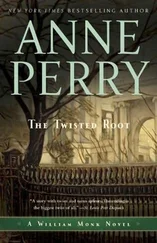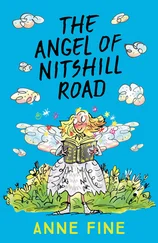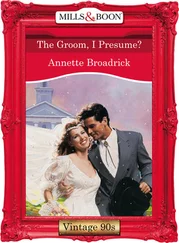‘Damn,’ she said, and switched off the radio. She would have to buy something else for dinner, on the way home.
But she was on the right side of the city for Dooradoyle, and the traffic was easy all the way to the hospital. Constance found a parking space not far from Outpatients, and brushed the crumbs from off her last good blouse. Then she gathered her bag and her coat and pulled herself out of the car into the heaviness of the walking world.
Inside the hospital building, she set her feet to follow the nice yellow arrows on the floor, one after the other, as though she would get marks, somehow, for being on time and good. But, You eejit , she thought, as she arrived to find the queue already stretching down the corridor. They called a batch of women for ten o’clock, but they all turned up at half past nine because they knew something Constance had forgotten about Outpatients. This was the price she paid for a healthy life, Constance thought — she had been lucky. The woman after her had come in from Adare and the traffic was beyond belief. Roadworks, she said.
Their files were stacked on a trolley in two slanting rows and the nurse in charge was working hard, keeping up the banter as she passed with folders and X-rays.
‘Oh I love the glitter! We’re not allowed nail polish, would you believe. I miss it!’
There was no way of telling how long each woman would spend in the room across the corridor. A few came out and headed straight for the exit, but if a woman in a white coat came out first, then they followed the big brown envelope she held to join a new queue on a banquette further down the way. These women wore hospital gowns that gaped at the back and carried their tops and coats in a plastic shopping basket which they set on the ground in front of them. Some of them were quite young. Constance wasn’t the youngest there that morning, not by any means.
The woman sitting beside her had very big thighs, one of which pressed against Constance, as it overspilt the narrow confines of the orange stackable chair. The fat was a little cooler than you might expect, but it contained a secret warmth, and was surprisingly pleasant for being so soft. Constance started to doze in the thick hospital air. That smell — whatever they used to clean the floors. Some sweetness in it, like the smell of your own body, after a child is born.
She was back on the road at Bunratty, cutting through the fields — the impossible ease of it — and she remembered the undoing of her own bones as the children were born. Her pelvis opening — there was a pleasure in it, like the top of a yawn — as the baby twisted out of her. It was all so simply done. And the baby was such a force, each time. Donal, with a grumpy look on him, Shauna who came out in a blaze of red hair, and her sweet-natured middle son, Rory, who turned his mother into a bit of dual carriageway herself, at the last, with such a bad tear. He took both exits, as she said to Dessie, at the same time.
‘How is all that?’ said Dessie a couple of years later. And Constance just laughed.
‘How is all that?’ she mocked. And then, ‘It’s all fine.’
Because it was true. It was fine. Her body had been so clever and self-healing. It had been so good to her, and willing to go again.
Or stupid, perhaps. Her body was a stupid thing.
The woman beside reached down into a plastic bag, and found a bottle of water. She was wearing boots with no laces under a large cheesecloth skirt and when she took off the too-tight cardigan you saw that the cuffs of her blouse didn’t go around her wrists. She pushed the sleeves up in the hospital heat and unscrewed the bottle of water and, as she did so, Constance noticed some stripes on her forearm: silvery, like the negative of a tattoo, with a faint flush of red along the edges. They were all going across the way and the effect was not unattractive until you realised the stripes were scars and that they were self-inflicted. Some of them were very old and very wide — you could date the things, like the rings in a tree — they spread as she grew. One of these ancient scars had been freshly recut, and Constance felt her own skin tighten at the thought of it. A pain shot the length of her thighs — or not a pain so much as a weakness, a sympathetic jolt. Sudden, and then over. She stirred in the plastic chair and it was gone.
The woman lifted the water bottle, then looked her way.
‘One fifty,’ she said.
‘No,’ said Constance, trying to look back at her.
‘For water!’
She avoided the woman’s neck and chest, hovered along her hairline, before settling on her eyes. It was a lived-in face, ordinary enough. Unmarked.
‘They have you every way,’ said Constance.
The woman was trying to lose a bit, she said. She had a wedding coming up in England and she had a great outfit she found in Marks and Spencers and she just had to lose a bit to get into the skirt. She could get into it all right, she just had to zip it up. The thing was, she had terrible bloat.
She looked across the corridor as she talked about the weight, her head swaying slightly from side to side like a boxer’s.
‘What you need is, you know, a Playtex thing,’ said Constance.
‘Huh.’
‘Some kind of elastic knickers, anyway. Pull you right in.’
The woman glanced round at her, suspicious.
‘You know the ones,’ said Constance.
‘Oh yeah right.’
The woman did not have breast cancer, Constance thought. Clearly not. Or if she had it would just be coincidence. A double tragedy. The woman was a hypochondriac, she was someone who liked to queue. You could not cure her because there was nothing wrong with her. Apart from everything, of course. Everything was wrong with her. And then, what do you do?
Her own hand was on her breast now, before she was even aware of it, at the place where it merged with her armpit; she could feel the lace of her bra, and under that a softness, and under that again vague knots.
But she really wanted the woman to enjoy her day out. She thought she deserved that much. Not to look stupid in a stupid skirt that she should not have bought in the first place, because it did not fit.
‘Have you got a hat?’ she said.
‘You know, I don’t?’ she said. ‘I am that desperate.’
‘What colour?’
‘I wanted red,’ she said. ‘With the spotty netting and the feathers? But they don’t do red.’
‘No,’ said Constance, thinking there was a good reason for that. ‘Have you considered black?’
But before she could dismiss the idea out of hand, the nurse called: ‘Margaret Dolan!’ and with much rummaging and bag gathering the woman collected herself and got up out of the chair. At the grey door, she turned back to say, ‘Wish me luck.’
‘Good luck,’ said Constance. And the woman looked suddenly passionate, destined, before she turned again and was gone.
‘She has a wedding coming up,’ Constance said to the woman from Adare. And they both settled back in for the wait.
The women were in there two at a time, one with the radiologist, one getting undressed in the changing room outside, so Constance did not know how Margaret Dolan had fared by the time she was called through the door. She faced the back wall of the little curtained cubicle and took off her cardigan, then her blouse. She put them in the basket with her coat and bag and she inserted her arms into the sleeves of the hospital gown, then she sat on the little bench and waited again, facing the curtain. Now that she was private, she lifted the gown and felt her breast properly, looking for the spot. The thing moved like it was full of liquid, or gel, with odd densities in its depths, most of them anchored to her chest wall. She did not, the GP told her, have especially lumpy breasts, but Constance did think it was a bit porridgy in there, and though she liked the look of breasts — even her own, indeed — although she saw something elegant in the orb of them, she wondered what men wanted when they wanted to push a woman’s chest around. Her fingertips tested each little lump, checking for sensation, and then they found the place: a small, slippery mass like a piece of gristle, that moved around and did not answer her touch. This was the thing to look for: a part of you that could not feel. Just a tiny part. And the reason it could not feel was that it was not you.
Читать дальше












